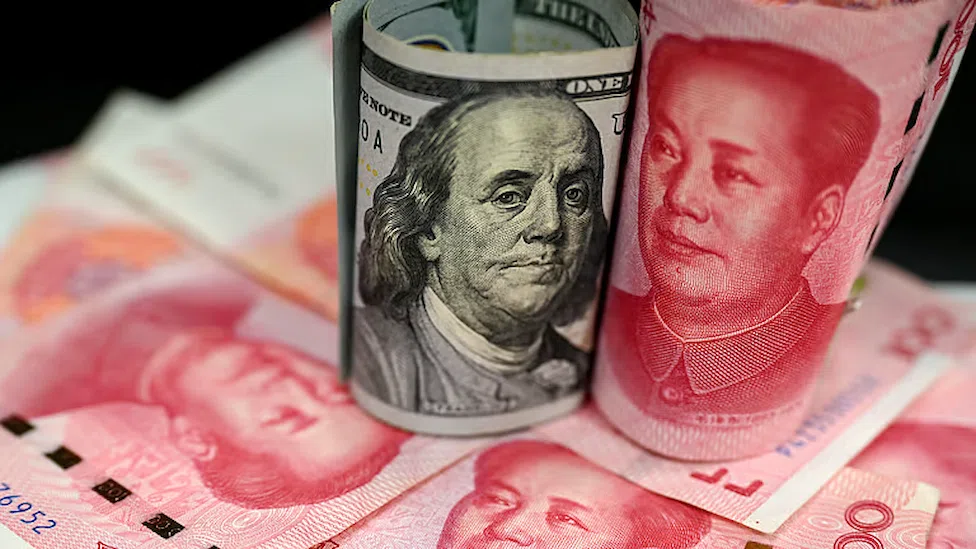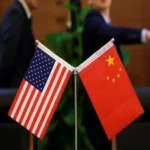China US Tariff War Escalates as Beijing Vows Strong Retaliation: China has pledged strong action after the U.S. imposed 104% tariffs on Chinese imports. Foreign Ministry Spokesperson Lin Jian warned of retaliation if the U.S. continues its trade war. The new U.S. tariffs took effect on Wednesday, April 9, 2025.
China responded with 34% tariffs on American goods starting April 10, 2025. The China US tariff war threatens global trade stability. Experts warn of severe economic consequences.
Also Read | Chinese Exporters Tariffs Impact: How New U.S. Duties Are Hurting Businesses
China US Tariff War Escalates as Beijing Vows Strong Retaliation: Insights
- The U.S. imposed 104% tariffs on Chinese goods, escalating trade tensions.
- China retaliated with 34% tariffs on U.S. imports, targeting multiple sectors.
- Experts say tariffs above 35% could push Chinese exporters out of the U.S. market.
- Beijing accuses the U.S. of economic bullying and unilateralism.
- The China US tariff war may worsen inflation and market volatility.
Background
Trade tensions between China and the U.S. have grown since 2018. Former President Trump launched a tariff war to reduce the trade deficit. The “Phase 1 ” deal in 2020 aimed to ease tensions.
However, China missed its purchase targets due to the pandemic. Now, new tariffs reignite the China US tariff war, risking deeper economic damage.
Main Event
The U.S. recently imposed 104% tariffs on Chinese goods. China quickly responded with 34% tariffs on American products. Foreign Ministry Spokesperson Lin Jian accused the U.S. of unfair tactics. He said China would “fight to the end” if pushed.
A Chinese white paper called U.S. actions “economic bullying.” It warned tariffs could hurt U.S. industries and raise inflation. Dan Wang of Eurasia Group said tariffs over 35% would make U.S. trade unprofitable for Chinese firms.
China claims it met its Phase 1 deal obligations. It says the U.S. broke terms instead. The White House has not yet responded. Meanwhile, markets fear prolonged trade battles.
Also Read | US China Tariff Dispute: China Rejects US ‘Tariff Blackmail’ Amid Trump’s Push for 50% Hike
Implications
The China US tariff war could hurt both economies. U.S. consumers may face higher prices. Chinese exporters could lose market share. Businesses on both sides may suffer losses. Global supply chains could also face disruptions. Experts warn of financial market instability.
Conclusion
The China US tariff war shows no signs of cooling. China vows strong countermeasures if tensions rise further. Experts urge dialogue to avoid economic harm. Without compromise, global trade may face long-term damage. The world watches as both nations clash over trade policies.



